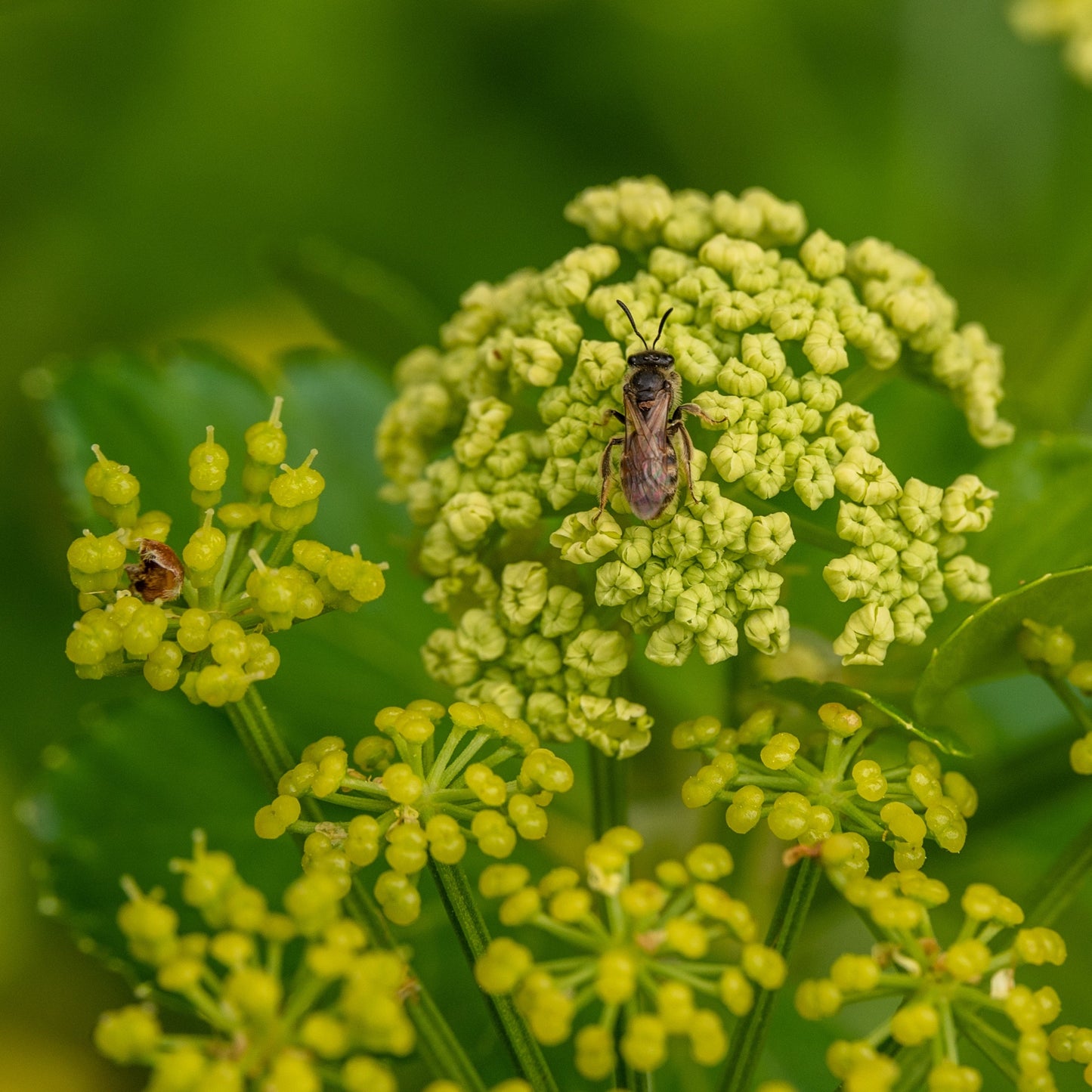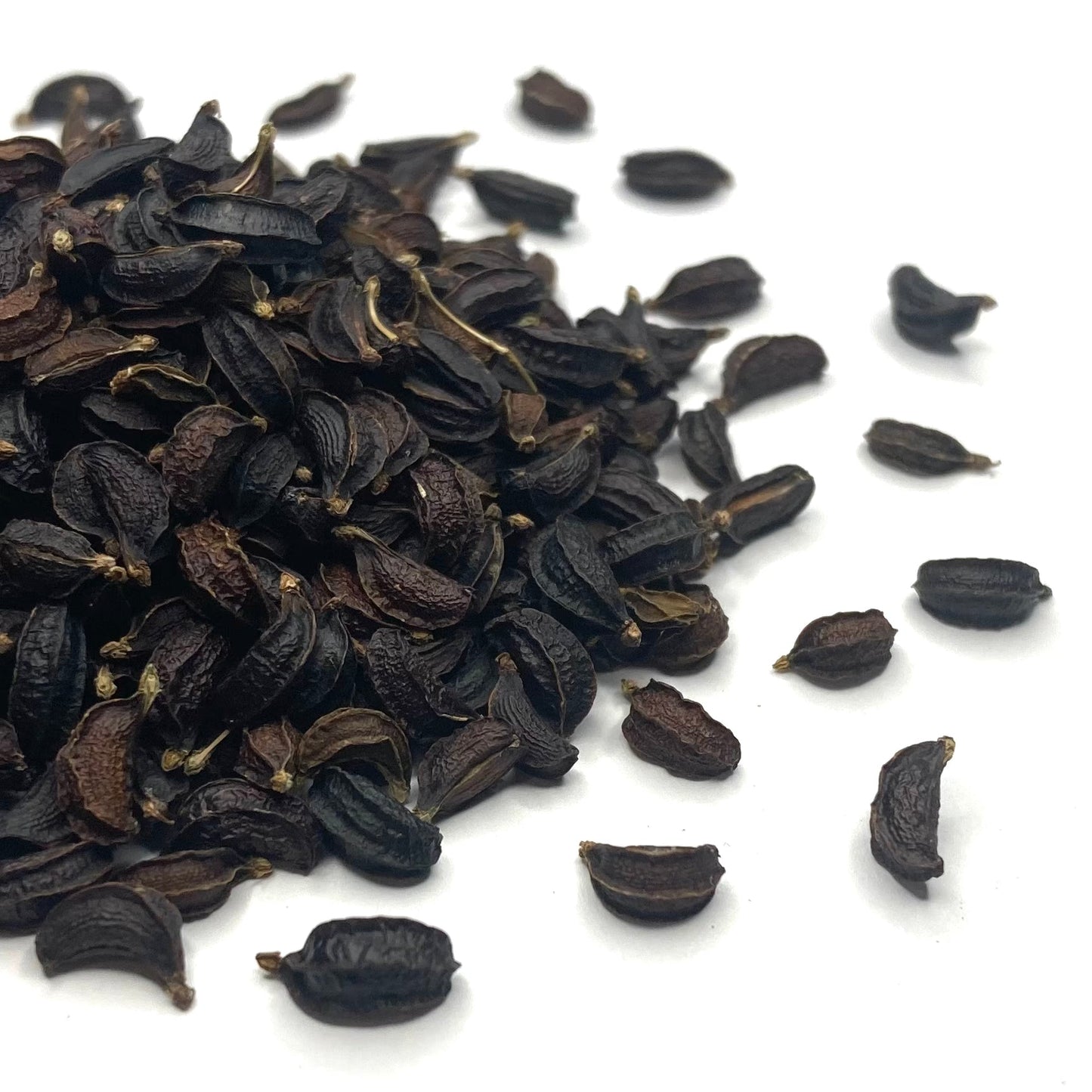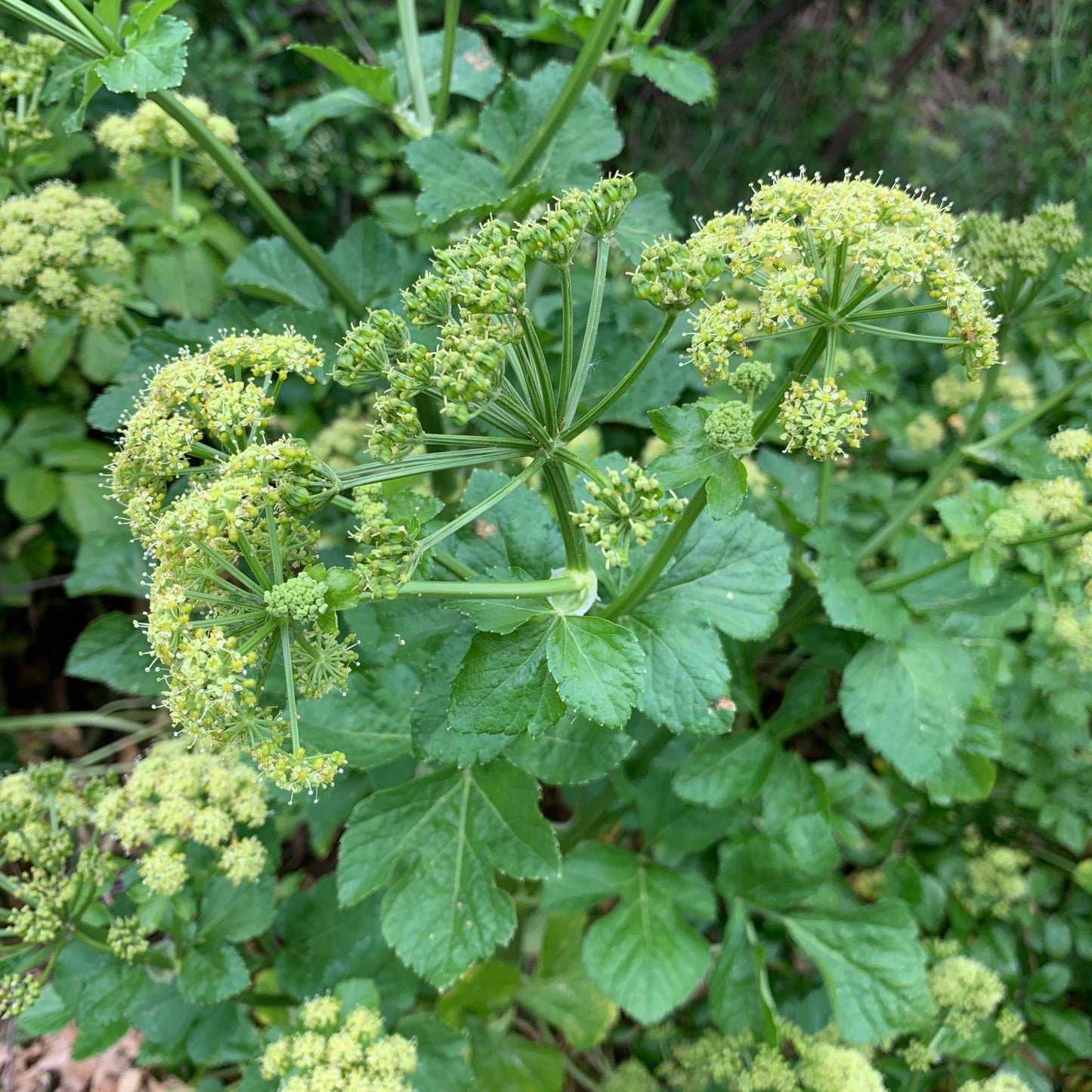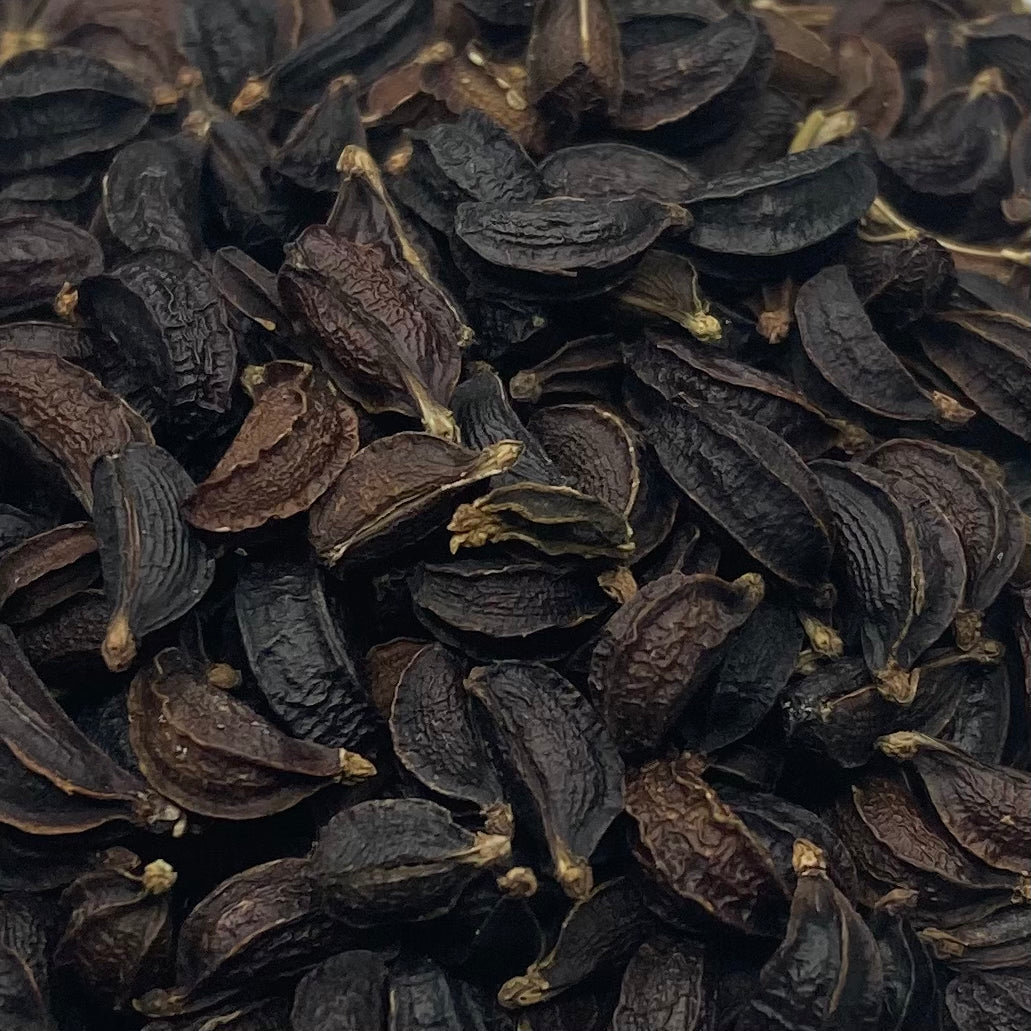Alexanders aka Black Lovage (Smyrnium olusatrum)
List Price: $4.00
Couldn't load pickup availability
This coastal plant native to the Mediterranean, known by some as Horse Parsley or Black Lovage, is said to have a history reaching back to Alexander the Great. Ancient Romans were very fond of Alexanders, and ate the stems, leaves, roots, and flower buds as vegetables. The taste is said to be reminiscent of celery or parsley, and the black seeds it produces (origin of the common name ‘Black Lovage’) can be used as a pepper-like spice. Romans spread this plant throughout Europe, and it can still be found growing wild near medieval monasteries or by castle ruins in the UK. Through their growing season, they form large hedges through the waysides of Britain, and insects and bees flock to their great umbel flowers.
While it was cultivated as a common table vegetable long ago, it has since been replaced by celery. An 18th century pottage popular in Ireland was made of Alexanders, nettles, and watercress— a highly nutritious blend! This plant is said to have useful properties as a digestive aid, and seafarers once used it for scurvy and cleansing of the blood. Ancient Greek and Roman literature also described Smrynium olusatrum as diuretic and a laxative. According to Pliny the Elder, its name ‘Smyrnium’ refers to its myrrh-like fragrance; its latter name ‘olusatrum,’ meaning ‘black herb,’ points to the spicy black seeds Alexanders produces. Once a staple in Mediterranean and then British diets, Alexanders is now often referred to as the ‘lost’ or ‘forgotten’ vegetable. In planting seeds of this specie, one can expand their palette, and rediscover the relationship humankind once had with Smyrnium.







